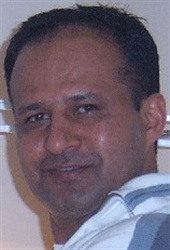主讲人:Muhammad Ali Babar, Associate Professor, IT University of Copenhagen, Denmark 时间:12 月 7 日(周五)下午 13:30 地点:张江校区软件楼 102 第二会议室 联系人:吴毅坚 wujijian@fudan.edu.cn Abstract: Global Software Development (GSD) has become an established paradigm of developing software. One of the most important prerequisites of successfully supporting GSD projects is the provision of appropriate tooling support. Several hundreds of tools have been developed to support GSD. However, a large majority of them are based on the principles of the desktop metaphor, which has well-known limitations. Moreover, variations in tools available/used by different GSD teams can also pose challenges. We assert that the Activity Theory and Cloud Computing can be leveraged to overcome many of the challenges characterized by the desktop metaphor and tools variations. The activity theory can provide the theoretical foundation for designing the next generation of GSD tools and cloud computing can provide the technological support for providing those Tool as a Service (TaaS) to address the tools variation challenges. In this talk, I’ll describe how the fundamental concepts of the activity theory can be leveraged for building an activity-based tooling infrastructure for GSE. I’ll briefly touch upon some aspect of a proof-of-concept prototype infrastructure that we have been incrementally designing and building. Then I’ll highlight the potential benefits of making this kind of infrastructure and other tools available as TaaS. I’ll also present a set of architectural requirements for a cloud infrastructure for providing TaaS and a set of potential architectural solutions to achieve the key architectural requirements. Finally, I’ll share the future directions of our research for leveraging the activity-based computing and cloud computing for supporting GSE teams. BIO: Dr. Muhammad Ali Babar is an Associate Professor at IT University of Copenhagen, Denmark. He has authored/co-authored more than 135 peer-reviewed research papers in journals, conferences, and workshops. He has co-edited a book, software architecture knowledge management: theory and practice. Dr. Ali Babar has been a guest editor of several special issues/sections of IEEE Software, JSS, ESEJ, SoSyM, IST, and REJ.Apart from being on the program committees of several international conferences such as WICSA/ECSA, ESEM, SPLC, ICGSE, and ICSP for several years, Dr. Ali Babar is also chairing the program committees of several conferences such as WICSA/ECSA 2012, ECSA2010, PROFES2010, and ICGSE2011. He is a member of steering committees of WICSA, ECSA and ICGSE. He has presented tutorials in the areas of software architecture and empirical approaches at various international conferences. Prior to joining R&D field, he worked as a software engineer and an IT consultant for several years in Australia. His current research interests include software architecture, global software development, agile approaches and evidence-based software engineering. He obtained a PhD in computer science and engineering from University of New South Wales, Australia. |